|
|
|
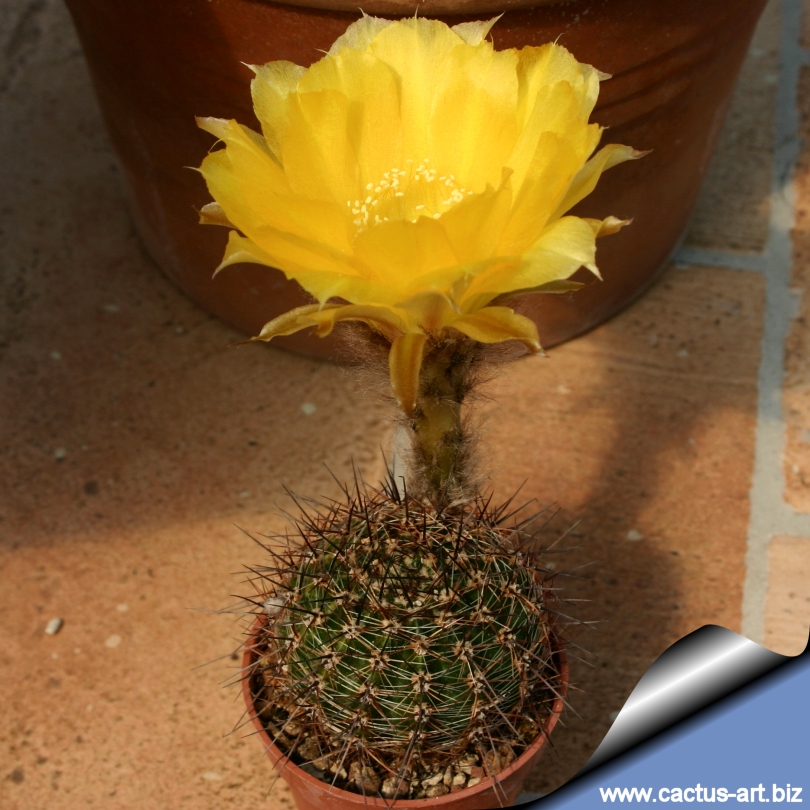
Lobivia aurea
sierragrandensis
The specific name means golden flowered
|
Description: Lobivia
aurea is a very variable taxon with solitary or branched stems with many
basal and lateral offshoots. There are several varieties with very
different spine shape and length. The var. sierragrandesis
has long thin spines.
Stems: Dark green globular or elongated reaching a height of
15cm and a diameter of 4 to 10 cm or more.
Ribs: 14 to 15 sharp-edged separated by deep grooves.
Areoles: Brown on young plants.
Radial spines: More than 10 thin, clear about 1 cm. long
pointing outward,
Central spines: Usually 4 , 2 to 4 cm long. The one to four
central spines are thicker reddishi-brown to blackish with yellow tips.
Flowers: Up to 10 cm long. They are usually lemon yellow and
bright yellow inside. Blooms in flushes in late spring and occasionally
in summer. Buds are covered by long silky hairs and grow laterally from
the centre of the stem. The tube is slightly curved, funnel-shaped,
slender and a greenish white, with pale green scales red at the base,
with white and black down.
|
|
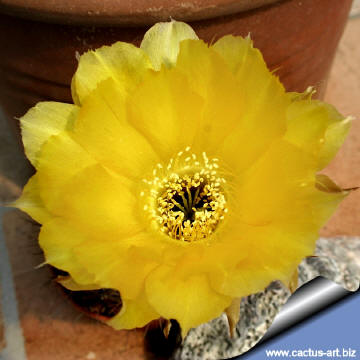 |
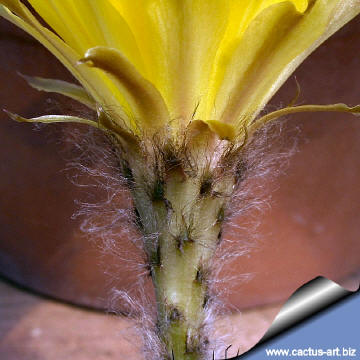 |
|
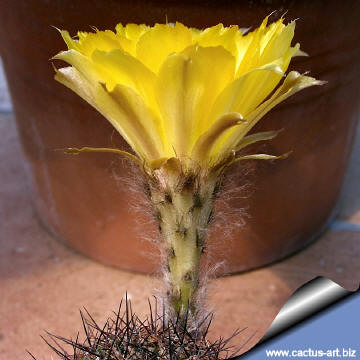 |
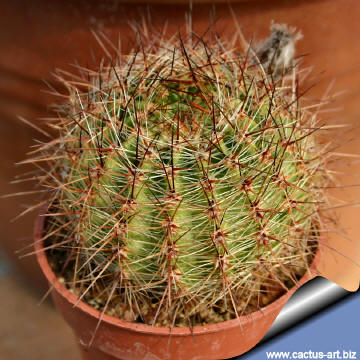 |
|


Advertising
|
|
|
|
|
Family:
Cactaceae (Cactus
Family)
Lobivia aurea
Accepted
Scientific name:
Echinopsis aurea Britton & Rose
Origin: Sierra Grande de Cordoba,
Cordoba, Northern Argentina, 1600-1800 m.
Conservation status: Listed in
CITES appendix 2.
Common English Names include: Golden Easter Lily Cactus
Etymology: From Latin adjective “aureus” = of gold,
golden for the bright yellow flowers of this species.
Synonyms:
- Lobivia aurea,
- Hymenorebutia aurea,
- Pseudolobivia aurea
Heterotypic synonyms:
- Hymenorebutia quinesensis,
- Lobivia leucomalla,
- Lobivia densispina var. leucomalla,
- Lobivia famatimensis var. leucomalla,
- Echinopsis leucomalla,
- Hymenorebutia leucomalla,
- Echinopsis aurea var. quinesensis,
- Lobivia aurea var. quinesensis,
- Echinopsis quinesensis,
- Lobivia shaferi,
- Echinopsis fallax var. shaferi,
- Lobivia shaferi ssp. rubriflora,
- Lobivia fallax,
- Lobivia shaferi ssp. leucomalla,
- Salpingolobivia aurea,
- Lobivia shaferi ssp. fallax,
- Lobivia ancastii,
- Lobivia cylindracea,
- Lobivia shaferi,
- Echinopsis cylindracea,
- Lobivia cylindrica,
- Hymenorebutia aurea var. cylindrica,
- Echinopsis fallax,
- Pseudolobivia aurea var. fallax,
|
|
|
|
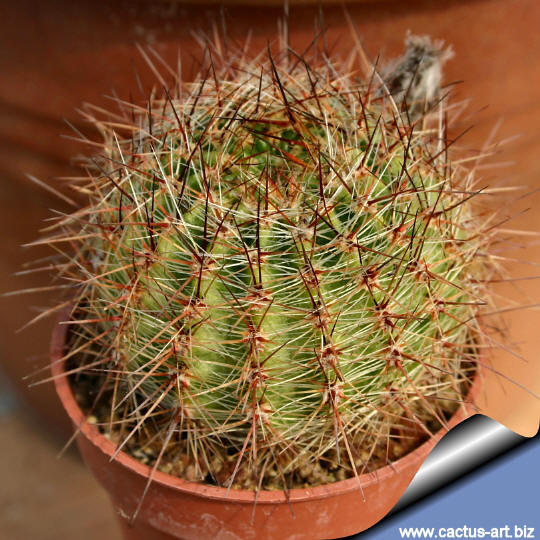
The var. sierragrandesis has long thin spines. The radials are whitish
wile the centrals are thicker reddishi-brown to blackish with
yellow tips.
|
|
Cultivation:
It is a summer grower species that offers no
cultivation difficulties. Water regularly in summer (but do not
overwater ) It is rot prone and should be planted in
a shallow pot. As most Echinopsis cultivated for their blossom, it needs
a soil mixture a little richer than the average cactus with still an
excellent drainage, keep rather dry in winter.
It is quite frost resistant if kept dry (hardy to -5°(-18°) C
Outside full sun or afternoon shade,
inside needs bright light, and some direct sun.
Propagation: Direct sow after
last frost, offsets (if available)
Photo of
conspecific
taxa, varieties, forms and
cultivars of Lobivia aurea (Echinopsis
aurea). (This taxon has lots of
synonyms (like most Lobivia) whit several controversial varieties and
subspecies):
|
|